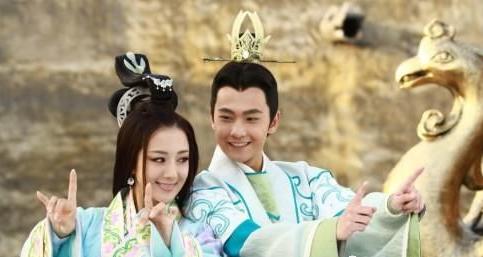Cao Zhi has always given people the impression that he did not meet huai cai, so he did not become Cao Wei's successor. In fact, Cao Zhi is not unaccounted for.
First of all, Cao Zhi's talent is mainly reflected in literature, and his talent in other aspects is limited.
Throughout Cao Zhi's resume: he was a famous writer of Cao Wei during the Three Kingdoms period; as a representative figure and a master of Jian'an literature, he was revered to the point of exemplary articles during the Two Jin Dynasties and the Southern and Northern Dynasties, and was manyly appreciated by Cao Cao for his outstanding literary performance.

The most typical deed is that in the fifteenth year of Jian'an (210), Cao Cao completed the Tongquetai in Yicheng and gathered a group of scribes to "ascend to the stage for endowment". Among the people, the only Cao Zhi made a poem that has been passed down through the ages with a little thought. Since then, Cao Cao has placed high hopes on Cao Zhi, believing that he is the person who can achieve great things the most... It can be seen that Cao Cao initially valued Cao Zhi because he was attracted by his literary talents. But for the successor to the Cao Wei regime, Cao Zhi's literary talent was clearly not dominant.
Secondly, Cao Zhi is not without the opportunity to express himself, and Cao Cao actually attaches great importance to Cao Zhi.
In the nineteenth year of Jian'an, Cao Cao invaded Sun Quan in the east, causing Cao Zhi to stay in the base camp of Yecheng, and inspired Cao Zhi to be angry and strong with his personal experience: "When I was 23 years old when I served as Dun Qiu Ling, I recalled what I did at that time, and I have never regretted it to this day. Now that you are 23 years old, how can you not be angry and strong! Several times, he almost set up Cao Zhi as his successor. It can be seen that Cao Cao is of great importance to Cao Zhi, and Cao Zhi is not without the opportunity to express himself, but in the end he did not inherit the throne.
Third, Cao Zhi's failure to become a successor is also related to his excessive literary popularity and talent. He often acted willfully, did not pay attention to grooming and restraining himself, drank wine without restraint, and did some things that disappointed Cao Cao.
In the twenty-second year of Jian'an, when Cao Zhi was out of the country, he took advantage of the wine to sit in the royal family's carriage and horse, open the gate of the palace, and indulge in the forbidden road that could only be walked when the emperor held ceremonies. Cao Cao was furious when he learned of this, and executed the bus order in charge of the royal family's carriages and horses, and from then on increased the legal prohibition on the princes. Cao Zhi also gradually lost Cao Cao's trust and favor because of this incident.
There is more than one such incident. Twenty-four years after Jian'an, Cao Ren was besieged by Guan Yu, and Cao Cao made Cao Zhi the general of Nanzhong Lang and led his troops to rescue Cao Ren. Unexpectedly, after the order was issued, Cao Zhi was so drunk that he could not be ordered, and Cao Cao was disappointed and no longer reused him. Therefore, there are many reasons why Cao Zhi did not become Cao Wei's successor, not because Huai Cai did not meet, but more because he did not have the characteristics of a successor.